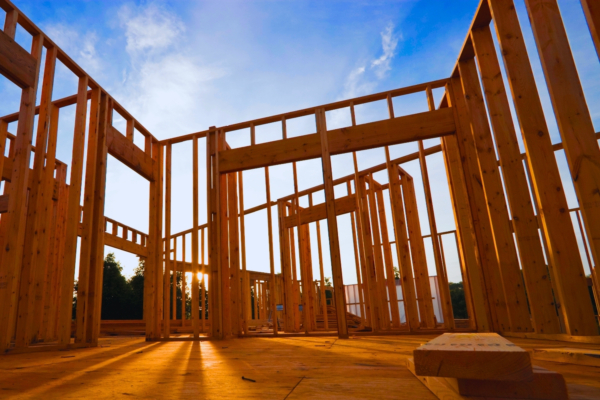
Buying a Commercial Building: Pros and Cons
Purchasing a commercial building is no small decision. After all, it is a lot different than purchasing a residential property. Typically there’s more money involved— and more responsibility. Whether you’re purchasing as an investment or as space for your own business, there are advantages and disadvantages to owning a commercial building.
Let’s take a look at the possible risks and rewards of buying commercial property.
Buying a Commercial Property as an Investor
If you buy a commercial property as a real estate investor, it means that you don’t intend to occupy the building. Instead, you’ll lease it out to tenants who need a space for their business.
Pro: It can be a great cash-flow opportunity.
First and foremost, real estate can be a great income source. The annual return of commercial properties is typically higher than that of residential real estate, which is great if you’re looking for investments with high earning potential. On top of that, buying a commercial building with tenants already in place means that you won’t even have to wait around to get the cash flow started.
Pro: You can establish specific lease terms.
Many, many laws govern residential real estate. There are still federal, local, and state laws in place to uphold standards and ethical business practices, but there are generally fewer rules when it comes to commercial leases. This gives you, as a landlord, a little more freedom when setting your lease terms. For example, you can request more documents from a business in order to thoroughly vet them.
Pro: Having issues with tenants is less likely.
Tenants of commercial properties usually aren’t individuals; they’re businesses. Because of this, the owner-tenant relationship will look a lot different than it would with a residential lease. Many commercial property owners much prefer the business-to-business relationship. There are several reasons for this:
- Since their location is tied to their overall brand image, a business is more likely to keep up and maintain the property.
- Businesses often bring higher credit and leases are backed by a personal guarantee from the business owner or partners.
- Businesses typically abide by daytime business hours, so you’re less likely to receive a call or complaint at inconvenient times. Bars and restaurants, among others, are notable exceptions.
This isn’t to say that you will never come across a commercial tenant that causes headaches. There are bad tenants in every real estate sector. However, the likelihood is much smaller.
Con: The upfront costs are higher.
Office buildings typically come with a higher price tag than the average home. In addition to this, commercial real estate loans have a lower loan-to-value ratio, meaning you’ll have to put a higher percentage down in order to obtain financing. Just like purchasing any other property, you’ll have a down payment, closing costs, and other fees.
Con: There can be more risk involved.
More people come in contact with a commercial property, which opens up the possibility for accidents and major damage to your property. Think of a retail store and the risks involved there— patrons can get hurt inside or outside, cars can do damage to the building, vandals can strike after hours— the list of possibilities is endless. Be sure to weigh the risks associated with the types of commercial real estate you’re investing in, and understand what your property insurance will cost and cover.
Con: You’ll likely need the help of a property manager.
The repairs and maintenance of commercial buildings are a lot different than what you may find in a house. Because of this, many commercial property owners opt to hire a property manager to handle these responsibilities.
Purchasing and Occupying Commercial Space
Many choose to buy commercial properties with the intention of being the owner-occupier. Here’s what to keep in mind when purchasing for your own use.
Pro: You’ll never face rent increases.
When you finance your purchase with a fixed or variable rate loan, you’ll be able to see exactly how much your loan payments will be every month for the foreseeable future, or at least for an extended period, which can make budgeting and financial forecasting easier. If you lease the space, you could be subject to rent increases every time your lease renews.
Pro: If the value goes up and you sell, you can make serious cash.
Real estate is generally considered a good investment because the value of property tends to rise over time. If you ever want to close the doors to your business or move elsewhere, you can make a profit on the sale of your property. You can invest this money back into your business or put it towards other things, such as your retirement if you’re leaving the small business life behind.
Pro: You can benefit from tax deductions.
Certain costs, such as interest on your mortgage, may be tax-deductible if you own the property.
Pro: You may be able to bring in another source of income.
If you purchase more square footage than you intend to occupy, you can use your property for your own business and use the rest as an investment. This can help create additional cash flow for your business. And since you will also occupy the property, it’ll be less of a hassle to manage and you’ll always have eyes on it.
Con: You’ll have more upfront expenses.
Even if you get financing, you’ll need the funds to cover several things upfront:
- The down payment: For commercial spaces, down payment requirements usually range from 15%-35% of the purchase price.
- Closing costs: Like a home mortgage, be prepared to pay a bundle in closing costs like appraisal fees, underwriting fees, inspections, and more.
- Renovations/improvements: Chances are, the property that you buy won’t be 100% suited for your business just yet. You’ll probably need to spend some money upfront to get it situated the way you want.
For a new business, this can be hard to swing.
Con: You may be stuck.
If you suddenly need a bigger space or realize that the place you’re in is too expensive for the income your business is producing, it may take a while to sell the property. Depending on the market, you can be stuck with your space until you find the right buyer.
Take Advantage of Commercial Building Ownership
Buying a commercial building can be a great purchase whether you’re investing or moving your company into a new space. Either way, it’s important to understand what you’re getting yourself into. By weighing the pros and cons, you’re one step closer to making the decision that’s best for your business.
Are you ready to buy commercial property?
Amplify’s commercial lending team can help you find the right financing for your business!


